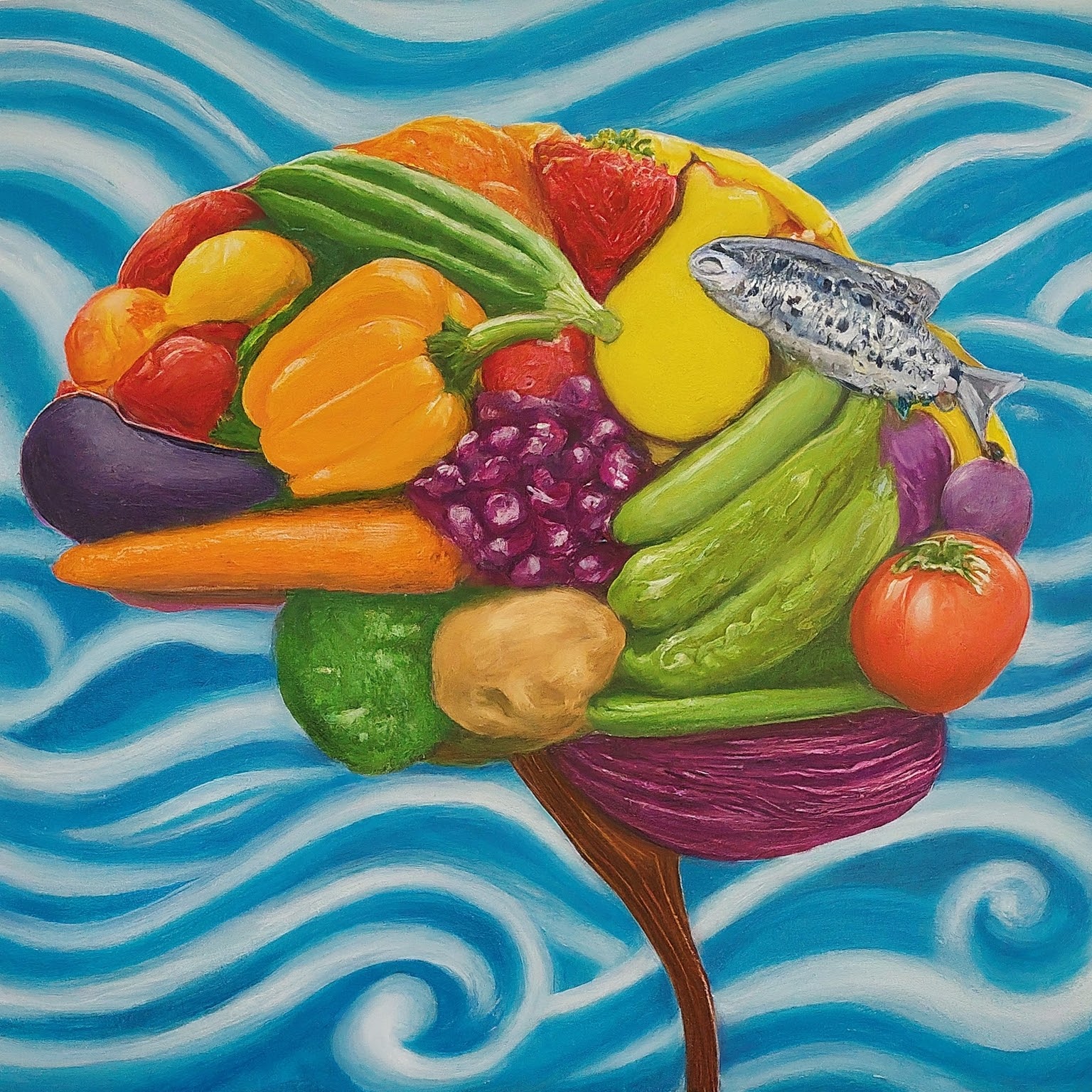Are you looking for natural ways to manage your anxiety symptoms? Incorporating certain foods into your diet can have a positive impact on your mental health. In this article, we will explore the relationship between nutrition and anxiety, and highlight some key foods that are known to help reduce anxiety symptoms. Whether you suffer from occasional anxiety or have been diagnosed with an anxiety disorder, making simple dietary changes can make a significant difference in how you feel.
Table of Contents
Understanding the Link Between Nutrition and Anxiety
Nutrition plays a crucial role in our mental health, including anxiety levels. The foods we eat can either help alleviate anxiety symptoms or contribute to increased feelings of anxiety. By understanding how nutrients impact anxiety levels, the gut-brain connection, and the role of inflammation in anxiety, we can make informed decisions about our diets to better manage our mental health.
How Nutrients Impact Anxiety Levels
Certain nutrients have been found to have a direct impact on anxiety levels. For example, omega-3 fatty acids, found in foods like salmon and walnuts, have been shown to reduce anxiety symptoms. Similarly, foods rich in magnesium, such as leafy greens and nuts, can help calm the nervous system and reduce feelings of anxiety. On the other hand, consuming excessive amounts of caffeine or sugar can exacerbate anxiety symptoms.
The Gut-Brain Connection
The gut-brain connection refers to the relationship between the gut microbiome and the brain. Research has shown that the health of our gut bacteria can influence our mental health, including anxiety levels. Eating a diet rich in probiotics, such as yogurt and fermented foods, can help support a healthy gut microbiome and reduce anxiety symptoms. Additionally, consuming fiber-rich foods can also benefit the gut-brain connection and improve mental well-being.
The Role of Inflammation in Anxiety
Inflammation is the body’s natural response to stress or injury, but chronic inflammation can contribute to anxiety and other mental health disorders. Certain foods, such as processed meats and refined sugars, can trigger inflammation in the body and worsen anxiety symptoms. On the other hand, anti-inflammatory foods like fruits, vegetables, and whole grains can help reduce inflammation and support overall mental health.
By paying attention to the link between nutrition and anxiety, and making conscious choices about the foods we eat, we can better manage anxiety symptoms and improve our overall well-being.
Foods that Help Reduce Anxiety Symptoms
Omega-3 Fatty Acids
Omega-3 fatty acids are essential nutrients that play a crucial role in brain health. Research has shown that omega-3 fatty acids can help reduce symptoms of anxiety and depression. Foods rich in omega-3 fatty acids include fatty fish such as salmon, mackerel, and sardines, as well as chia seeds, flaxseeds, and walnuts.
Probiotics and Fermented Foods
Probiotics are beneficial bacteria that support gut health and have been linked to improved mood and reduced anxiety. Fermented foods such as yogurt, kefir, sauerkraut, and kimchi are rich sources of probiotics. Including these foods in your diet can help promote a healthy gut microbiome and potentially reduce anxiety symptoms.
Complex Carbohydrates and Fiber
Complex carbohydrates, such as whole grains, fruits, and vegetables, are important for stabilizing blood sugar levels and providing a steady source of energy. Fiber-rich foods can also help support gut health and reduce inflammation, which may contribute to anxiety. Incorporating foods like oats, brown rice, quinoa, and legumes into your diet can help support overall mental well-being.
Nutritional Supplements for Anxiety
Magnesium
Magnesium is a vital mineral that plays a crucial role in the brain’s function and mood regulation. Studies have shown that magnesium deficiency is linked to higher levels of anxiety and stress. By supplementing with magnesium, individuals may experience a reduction in anxiety symptoms. Foods rich in magnesium include nuts, seeds, dark leafy greens, and whole grains.
Vitamin B Complex
The B vitamins, including B1, B2, B3, B6, B9, and B12, are essential for maintaining mental well-being and reducing anxiety. These vitamins help support the nervous system and regulate neurotransmitters that affect mood. Foods high in B vitamins include meat, fish, eggs, and leafy greens. Supplementing with a vitamin B complex can help alleviate anxiety symptoms.
Ashwagandha and Rhodiola
Ashwagandha and Rhodiola are adaptogenic herbs that have been used for centuries in traditional medicine to help reduce stress and anxiety. These herbs work by regulating the body’s response to stress and promoting a sense of calmness. Research has shown that ashwagandha and Rhodiola can help improve mood and reduce anxiety symptoms when taken regularly as supplements.
Creating a Balanced Diet for Anxiety Relief
When it comes to managing anxiety symptoms through nutrition, creating a balanced diet is key. By incorporating whole foods and avoiding trigger foods, you can help reduce anxiety and promote overall mental well-being.
Incorporating Whole Foods
Whole foods are foods that are minimally processed and close to their natural state. These foods are rich in nutrients and can help support your mental health. Incorporating whole foods such as fruits, vegetables, whole grains, lean proteins, and healthy fats into your diet can provide essential vitamins and minerals that support brain function and help reduce anxiety symptoms.
Avoiding Trigger Foods
Certain foods and beverages can exacerbate anxiety symptoms and should be avoided or limited in your diet. Foods high in sugar, caffeine, and processed foods can contribute to feelings of anxiety and should be consumed in moderation. Alcohol and foods high in trans fats can also negatively impact your mental health and should be avoided if possible.
Meal Planning Tips
Meal planning can help you create a balanced diet that supports anxiety relief. When planning your meals, aim to include a variety of whole foods from all food groups. Consider incorporating foods rich in omega-3 fatty acids, such as fatty fish, nuts, and seeds, as these nutrients have been shown to have a positive impact on mental health. Additionally, prioritize hydration by drinking plenty of water throughout the day to support overall well-being.
By creating a balanced diet that focuses on whole foods, avoids trigger foods, and incorporates meal planning tips, you can help reduce anxiety symptoms and promote a sense of calm and well-being. Remember to listen to your body and make adjustments as needed to find what works best for you.
Final Thoughts:
Incorporating specific foods into your diet can have a significant impact on reducing anxiety symptoms. By focusing on nutrient-dense options such as leafy greens, fatty fish, and nuts, you can support your mental health and overall well-being. It is important to remember that while these foods can be beneficial, they should be part of a balanced diet along with other healthy lifestyle habits. By making small changes to your diet, you can take proactive steps towards managing your anxiety and improving your quality of life.
FAQs:
How does nutrition impact anxiety?
Nutrition plays a crucial role in mental health, including anxiety. Certain foods contain nutrients that can help regulate mood and reduce anxiety levels.
What are some foods that can help reduce anxiety?
Foods rich in omega-3 fatty acids, magnesium, zinc, and antioxidants are known to have anxiety-reducing properties. Examples include fatty fish, leafy greens, nuts, seeds, and dark chocolate.
Are there any foods that can worsen anxiety?
Yes, some foods can exacerbate anxiety symptoms. These include caffeine, sugary foods, processed foods, and alcohol. Consuming these in excess may contribute to feelings of anxiety and stress.
How can I incorporate anxiety-reducing foods into my diet?
You can incorporate these foods into your diet by including them in meals and snacks throughout the day. Try adding nuts and seeds to salads or yogurt, incorporating leafy greens into smoothies, and opting for fish as a protein source.
Can nutritional supplements help with anxiety?
In some cases, nutritional supplements such as omega-3 fatty acids, magnesium, and certain herbal supplements may offer relief from anxiety symptoms. However, it’s essential to consult with a healthcare professional before starting any new supplements.
Is there a specific diet that is best for reducing anxiety?
While there’s no one-size-fits-all diet for anxiety, adopting a balanced diet rich in whole foods, lean proteins, fruits, vegetables, and healthy fats can support overall mental well-being and help alleviate anxiety symptoms.
How long does it take for dietary changes to affect anxiety levels?
The timeline for experiencing the effects of dietary changes on anxiety levels can vary from person to person. Some individuals may notice improvements relatively quickly, while others may require more time. Consistency in dietary changes is key.







